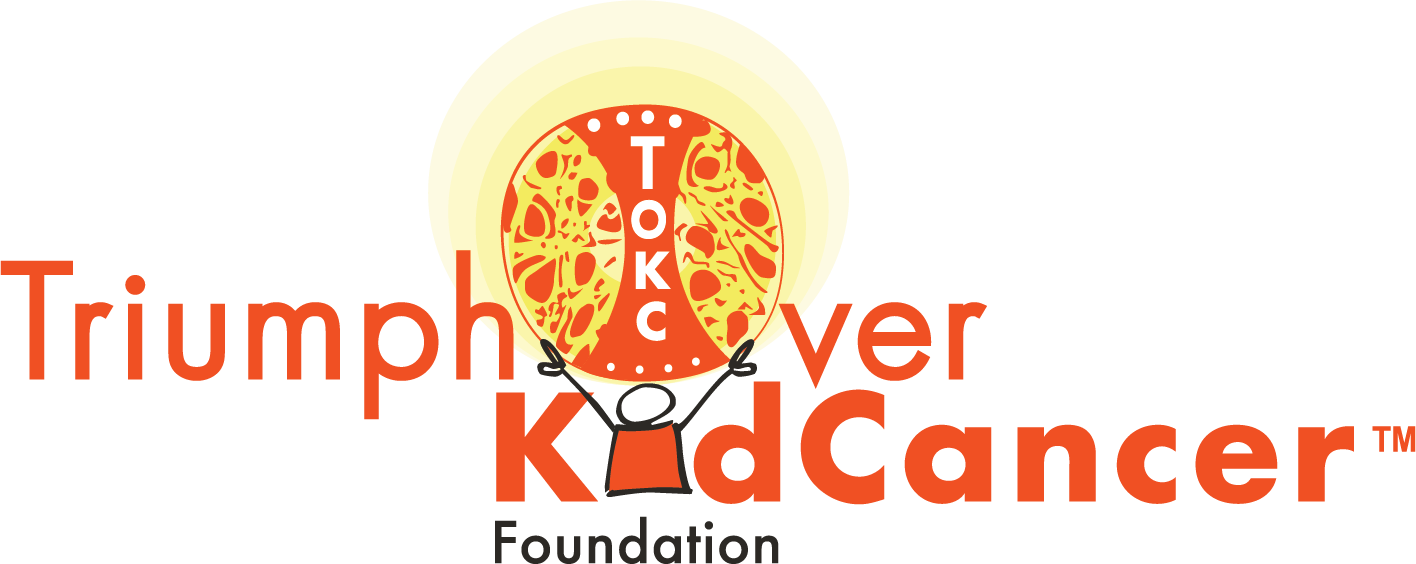Update on Research Supported by TOKC
Data from GRASP leads to possible future treatment avenues in osteosarcoma

Triumph Over Kid Cancer Foundation (TOKC) began with the desire and drive to fill the expansive gap in funding for pediatric cancer research. Only four percent of the billions of dollars in federal funding each year goes to study childhood cancers. TOKC Co-Founders James A. Ragan and Mecklin Ragan saw firsthand how James’ treatment options were limited and vowed to give hope to other children with similar illnesses. Today, as always, we make sure 100 percent of TOKC’s research dollars are MATCHED and go to fuel scientists and researchers looking to develop new therapies for childhood cancers.
We knew it was going to be a long journey as pediatric cancer research takes time – a lot of time. There are studies that give hope and those that lead to roadblocks. No matter the outcome, each step lays part of the foundation to create new options for children fighting cancer.
As a result of your generosity, TOKC completed funding the Pediatric Genome Research and Sequencing Project, otherwise known as GRASP, at the end of 2017. It is the only whole longitudinal genome sequencing project dedicated solely to pediatric cancers. The goal was for researchers to use the data to advance their understanding and develop more effective treatments for pediatric cancers. Your donations helped us raise $1.5 million dollars to support this research. M.D. Anderson then matched each dollar bringing the total raised to $3 million dollars.
We wanted to share an article about this important research published in Nature Communications in February 2020 entitled “Immuno-genomic landscape of osteosarcoma.” Using the whole genome sequencing data provided by GRASP, researchers conducted a comprehensive genomic and immune characterization of osteosarcoma tumor samples at different points in patients’ treatment to further investigate why immune checkpoint therapies have been ineffective.
Dr. Futreal, chair of Genomic Medicine at MD Anderson, said, “This study is important not only because it focuses on a rare cancer, but it sets the groundwork for understanding the multifaceted reasons this cancer doesn’t respond to immunotherapy, despite having certain hallmarks that suggest it would. Understanding those reasons and beginning to pick them apart does begin to give us lines of sight on how to get around the tumor’s methods of subverting the immune system.”
In addition, the article further delineated three distinct classes within the samples studied: tumors with low, intermediate, and high levels of immune infiltrate. Tumors with low or high immune infiltrate can also be referred to as “cold” or “hot” tumors, respectively. “Cold” osteosarcomas were generally found to have increased expression of the PARP2 gene, which could be targeted by available PARP inhibitors. This further supports the rationale for future studies exploring a combination of PARP inhibitors in the treatment of osteosarcoma.
Despite knowing that he would never see the benefits of the research supported by TOKC, James A. Ragan continued to encourage us to support promising pediatric cancer research projects, in the hopes that we may one day be able to help save the next kid.
Please donate today to fund innovative pediatric cancer research, and to help provide children with cancer and their families hope for a better future.
